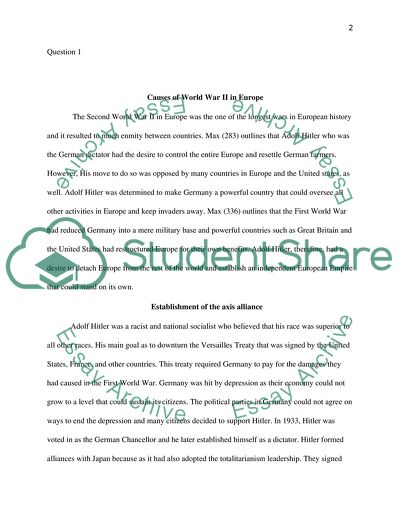Cite this document
(Causes of World War II in Europe Report Example | Topics and Well Written Essays - 2250 words - 1, n.d.)
Causes of World War II in Europe Report Example | Topics and Well Written Essays - 2250 words - 1. https://studentshare.org/history/1822000-burke-kathleen-ed-war-and-state-the-transformation-of-british-government-1914-1919-1982
Causes of World War II in Europe Report Example | Topics and Well Written Essays - 2250 words - 1. https://studentshare.org/history/1822000-burke-kathleen-ed-war-and-state-the-transformation-of-british-government-1914-1919-1982
(Causes of World War II in Europe Report Example | Topics and Well Written Essays - 2250 Words - 1)
Causes of World War II in Europe Report Example | Topics and Well Written Essays - 2250 Words - 1. https://studentshare.org/history/1822000-burke-kathleen-ed-war-and-state-the-transformation-of-british-government-1914-1919-1982.
Causes of World War II in Europe Report Example | Topics and Well Written Essays - 2250 Words - 1. https://studentshare.org/history/1822000-burke-kathleen-ed-war-and-state-the-transformation-of-british-government-1914-1919-1982.
“Causes of World War II in Europe Report Example | Topics and Well Written Essays - 2250 Words - 1”. https://studentshare.org/history/1822000-burke-kathleen-ed-war-and-state-the-transformation-of-british-government-1914-1919-1982.


